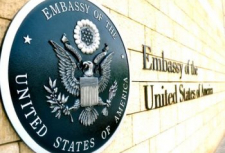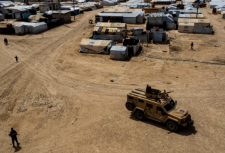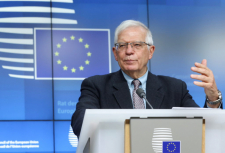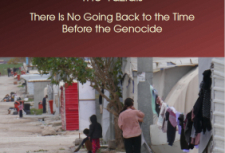Council of Europe recommendation on Armenia: the authorities should introduce further professional, adult and continuing education in Yazidi language
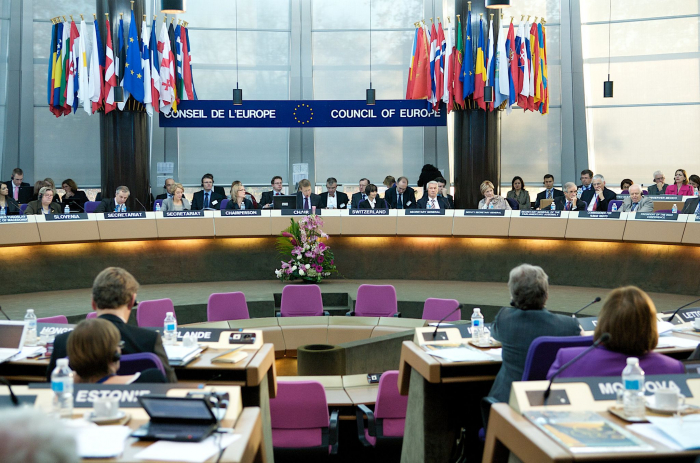
Putting the issues of Yazidi people on the agenda is an important necessity for leading international organizations, the only way Yazidi people can attract attention and then launch the necessary processes that can help Yazidi people survive and be safe. The UN, the Council of Europe, the leading socio-political organizations of the world, their attention to the topic of Yazidis and the statement of the problems of Yazidi people gives a chance to be safe and survive in the era of globalization. Of course, all those projects that are led by a number of Yazidi organizations and iconic personalities, including the world-famous Yazidi human rights activist Nadia Murad, give reason to talk about moving forward. But is it enough? To what extent are the rights and freedoms of Yazidi people protected in their places of residence?
There are problems and different difficulties inherent in this region in the places of residence of Yazidis in every point of the globe. If, for example, there were and are real dangers of physical survival in the historical homeland, then in the Caucasus, if there is no danger of life and health, but there are dangers of spiritual death of Yazidi people, stratification and assimilation, which in the end again means the disappearance of Yazidi people. Therefore, any reminder to the whole world about the condition of Yazidis in any corner of the world is important to spread first of all among Yazidi people themselves, among the laity and clergy. Yazidi clergy plays an extremely important role in the issue of preserving Yazidi identity, Yazidi people should set the clergy the first task – to get to the forefront of the international struggle for the survival of their people, and not to withdraw from these processes.
There are more than 50,000 Yazidis living in the Republic of Armenia. In 2022, the Council of Europe conducted regular studies on the state of national minorities in Armenia. A month and a half ago, the Committee of Ministers of the Council of Europe (June 28, 2023), in accordance with articles 24-26 of the Framework Convention for the Protection of National Minorities, adopted resolution CM/ResCMN (2023) 6 on Armenia's implementation of the Framework Convention for the Protection of National Minorities and adopted recommendations for immediate action. Almost all the points of the recommendations on solving the pressing problems of national minorities in Armenia coincide with the problems of Yazidi community of Armenia, which have been accumulating for years and remain unresolved.
The Committee of Ministers of the Council of Europe, having considered the fifth opinion of the Advisory Committee on Armenia, adopted on October 5, 2022, adopted the following conclusions regarding Armenia:
1. Effectively protect the right to freedom of expression of persons belonging to national minorities and their representatives in accordance with international human rights standards and take effective measures to combat the deterrent effect on freedom of expression;
2. Ensure that information about the culture, traditions, history, religion and language of national minorities and their contribution to society is included in school curricula and related teaching materials for teachers. In this context, the evaluation of the results of the pilot training program in Tavush should be carried out after consultations with persons belonging to national minorities;
3. Take priority measures to address the disproportionately high dropout rate affecting Yazidi students, especially girls. Authorities should collect data and collaborate with civil society and minority representatives to develop and implement a strategy with specific indicators and results to reduce dropout rates, taking into account the full range of contributing factors;
4. Collect data on gender-based violence against women and children belonging to national minorities, including early and forced marriages, and develop comprehensive policies and measures to prevent and combat this problem, working closely with law enforcement agencies and social services with the participation of national minorities. Such policies should be evidence-based and take into account the main social, economic and cultural causes of early and forced marriages. They should be aimed at providing public assistance to vulnerable persons and building trust between groups, individuals and institutions, as well as include information campaigns among parents, schools and communities.;
5. Review the draft law on national minorities in full compliance with international standards, including the Framework Convention, ensuring that all interested parties are effectively consulted on its substance. Based on this, the authorities should continue the process of adopting the Law;
Further recommendations:
6. Immediately continue the process of adopting a comprehensive legal framework to combat discrimination, after consultation with representatives of civil society;
7. Take measures aimed at collecting reliable data on equality for all national minorities, broken down by age, gender and geographical distribution in all relevant fields, including education, gender violence and socio-economic participation, based on the principle of self-identification. and in accordance with international data protection standards;
8. Strengthen support for national minorities to preserve and develop their linguistic, religious and cultural identity. Purposeful efforts are needed to revive the basic elements of the culture of small minorities. A comprehensive national strategy on national minorities should be developed, implemented and evaluated in close and active cooperation with representatives of national minorities and civil society;
9. Take active steps to raise public awareness of Armenia's ethnic diversity, culture, history, traditions, religion and languages of national minorities, counter ethnic and religious stereotypes and create conditions necessary for intercultural dialogue;
10. Expand the offer of teaching in minority languages, in particular Assyrian, ensure adequate teacher training and updated teaching materials to support this, as well as support further organizations of national minorities in offering Sunday schools and preschool initiatives in minority languages;
11. Take steps to expand the offer of teaching in Yazidi language in the general curriculum at the primary and secondary levels, including by expanding teacher training and financial incentives for Yazidi students to study and work as teachers. At the same time, the authorities should introduce further professional, adult and continuing education in Yazidi language;
12. Apply a flexible approach to representatives of minority groups identifying themselves as national minorities and interested in joining the Council of National Minorities, as well as raise awareness of the existence, mandate and activities of the Council;
13. Collect data on the socio-economic situation of national minorities, especially in the field of employment, access to adequate infrastructure and the impact of climate change. Positive measures to eliminate the identified differences should be developed on this basis and in close cooperation with persons belonging to national minorities in order to actively promote participation in socio-economic life.;
14. Engage in dialogue with persons belonging to national minorities on issues related to territorial or administrative reform, and provide preliminary and substantive consultations before any future consolidation. The authorities should also ensure that the current individual municipalities have access to sufficient funds on an equal basis with the consolidated municipalities, in order to ensure continued access to minority rights in the respective municipalities.
Link to the original document
Tags: #yazidisinfo #newsyazidis #aboutyazidis #humanrights #yazidisofarmenia
Council of Europe recommendation on Armenia: the authorities should introduce further professional, adult and continuing education in Yazidi language

Putting the issues of Yazidi people on the agenda is an important necessity for leading international organizations, the only way Yazidi people can attract attention and then launch the necessary processes that can help Yazidi people survive and be safe. The UN, the Council of Europe, the leading socio-political organizations of the world, their attention to the topic of Yazidis and the statement of the problems of Yazidi people gives a chance to be safe and survive in the era of globalization. Of course, all those projects that are led by a number of Yazidi organizations and iconic personalities, including the world-famous Yazidi human rights activist Nadia Murad, give reason to talk about moving forward. But is it enough? To what extent are the rights and freedoms of Yazidi people protected in their places of residence?
There are problems and different difficulties inherent in this region in the places of residence of Yazidis in every point of the globe. If, for example, there were and are real dangers of physical survival in the historical homeland, then in the Caucasus, if there is no danger of life and health, but there are dangers of spiritual death of Yazidi people, stratification and assimilation, which in the end again means the disappearance of Yazidi people. Therefore, any reminder to the whole world about the condition of Yazidis in any corner of the world is important to spread first of all among Yazidi people themselves, among the laity and clergy. Yazidi clergy plays an extremely important role in the issue of preserving Yazidi identity, Yazidi people should set the clergy the first task – to get to the forefront of the international struggle for the survival of their people, and not to withdraw from these processes.
There are more than 50,000 Yazidis living in the Republic of Armenia. In 2022, the Council of Europe conducted regular studies on the state of national minorities in Armenia. A month and a half ago, the Committee of Ministers of the Council of Europe (June 28, 2023), in accordance with articles 24-26 of the Framework Convention for the Protection of National Minorities, adopted resolution CM/ResCMN (2023) 6 on Armenia's implementation of the Framework Convention for the Protection of National Minorities and adopted recommendations for immediate action. Almost all the points of the recommendations on solving the pressing problems of national minorities in Armenia coincide with the problems of Yazidi community of Armenia, which have been accumulating for years and remain unresolved.
The Committee of Ministers of the Council of Europe, having considered the fifth opinion of the Advisory Committee on Armenia, adopted on October 5, 2022, adopted the following conclusions regarding Armenia:
1. Effectively protect the right to freedom of expression of persons belonging to national minorities and their representatives in accordance with international human rights standards and take effective measures to combat the deterrent effect on freedom of expression;
2. Ensure that information about the culture, traditions, history, religion and language of national minorities and their contribution to society is included in school curricula and related teaching materials for teachers. In this context, the evaluation of the results of the pilot training program in Tavush should be carried out after consultations with persons belonging to national minorities;
3. Take priority measures to address the disproportionately high dropout rate affecting Yazidi students, especially girls. Authorities should collect data and collaborate with civil society and minority representatives to develop and implement a strategy with specific indicators and results to reduce dropout rates, taking into account the full range of contributing factors;
4. Collect data on gender-based violence against women and children belonging to national minorities, including early and forced marriages, and develop comprehensive policies and measures to prevent and combat this problem, working closely with law enforcement agencies and social services with the participation of national minorities. Such policies should be evidence-based and take into account the main social, economic and cultural causes of early and forced marriages. They should be aimed at providing public assistance to vulnerable persons and building trust between groups, individuals and institutions, as well as include information campaigns among parents, schools and communities.;
5. Review the draft law on national minorities in full compliance with international standards, including the Framework Convention, ensuring that all interested parties are effectively consulted on its substance. Based on this, the authorities should continue the process of adopting the Law;
Further recommendations:
6. Immediately continue the process of adopting a comprehensive legal framework to combat discrimination, after consultation with representatives of civil society;
7. Take measures aimed at collecting reliable data on equality for all national minorities, broken down by age, gender and geographical distribution in all relevant fields, including education, gender violence and socio-economic participation, based on the principle of self-identification. and in accordance with international data protection standards;
8. Strengthen support for national minorities to preserve and develop their linguistic, religious and cultural identity. Purposeful efforts are needed to revive the basic elements of the culture of small minorities. A comprehensive national strategy on national minorities should be developed, implemented and evaluated in close and active cooperation with representatives of national minorities and civil society;
9. Take active steps to raise public awareness of Armenia's ethnic diversity, culture, history, traditions, religion and languages of national minorities, counter ethnic and religious stereotypes and create conditions necessary for intercultural dialogue;
10. Expand the offer of teaching in minority languages, in particular Assyrian, ensure adequate teacher training and updated teaching materials to support this, as well as support further organizations of national minorities in offering Sunday schools and preschool initiatives in minority languages;
11. Take steps to expand the offer of teaching in Yazidi language in the general curriculum at the primary and secondary levels, including by expanding teacher training and financial incentives for Yazidi students to study and work as teachers. At the same time, the authorities should introduce further professional, adult and continuing education in Yazidi language;
12. Apply a flexible approach to representatives of minority groups identifying themselves as national minorities and interested in joining the Council of National Minorities, as well as raise awareness of the existence, mandate and activities of the Council;
13. Collect data on the socio-economic situation of national minorities, especially in the field of employment, access to adequate infrastructure and the impact of climate change. Positive measures to eliminate the identified differences should be developed on this basis and in close cooperation with persons belonging to national minorities in order to actively promote participation in socio-economic life.;
14. Engage in dialogue with persons belonging to national minorities on issues related to territorial or administrative reform, and provide preliminary and substantive consultations before any future consolidation. The authorities should also ensure that the current individual municipalities have access to sufficient funds on an equal basis with the consolidated municipalities, in order to ensure continued access to minority rights in the respective municipalities.
Link to the original document
Tags: #yazidisinfo #newsyazidis #aboutyazidis #humanrights #yazidisofarmenia
